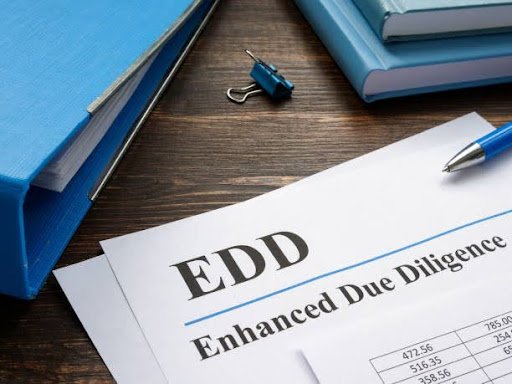Organizational risks have been affecting the credibility and operational ability of various institutions for a very long time. Due to the vulnerability of susceptible business operations, legitimate entities often find themselves involved in unrequired financial dilemmas through dealings with unregistered and illegal organizations.
The enticement of these unregulated activities allows imposters to exploit the functionality of different industries. Following these objectives, approximately 666 corporate scam cases were reported by large firms in Australia in 2023.
The identification of such activities emphasizes businesses to integrate enhanced due diligence measures during the B2B onboarding operation. To further identify the role of the enhanced due diligence modules, skim through this blog to understand its importance.
Organizational Significance of EDD Compliance Programs
Know Your Business (KYB) checks are an integral part of a company’s identity authentication procedures. The integration of enhanced due diligence modules during this process is essential as they are applicable and required for the risk assessment of high-risk individuals and organizational entities. Primarily, the EDD checks aim to verify the financial background and risk profiles of the influential entities.
To counter the severity of the reputational organizational damage, enhanced due diligence serves a critical role. During the assessment of politically exposed entities and influential persons, the enhanced due diligence offers the following benefits:
- The enhanced due diligence effectively mitigates the intensity of financial crimes, which involve money laundering and identity theft in real time.
- EDD protects the organization’s environment from legal repercussions, which include non-regulatory fines and law avoidance penalties.
- Risk awareness is also an imperative component of the enhanced due diligence module. The businesses are able to effectively flag illegal entities and suspicious transactions to combat the third-party threats associated with the vendors and suppliers.
Constituents of an Enhanced Due Diligence Checklist
Identification of the client’s documents and identity credentials is essential during the enhanced due diligence operations. Once the identity matches are conducted, it is necessary to monitor the transactional patterns of the high-risk entities.
During the enhanced due diligence assessment, assurance with the regulatory modules is mandatory. This includes client screening against criminal watchlists, PEP lists, and sanctions databases. The EDD checks emphasize risk management strategies, which operate through risk scoring and transactions.
As a result of these enhanced due diligence identification checks, examiners require businesses to ensure enhanced scrutiny of the PEPs. This tackles the thorough assessment of the PEP’s ownership status and background analysis.
Enhanced Due Diligence Requirements – A Concerning Factor
As per the guidelines and regulatory instructions of the FATF body, a risk-based AML screening approach is the epitome of criminal identification. For the assessment of the high-profile entities, the evaluation of their identity credential is crucial.
Once screened properly, it is required that their fund source investigation and unusual transactional monitoring is conducted actively. Over the recent technological business era, organizations are consistently aiming to identify te client’s information through adverse media monitoring checks. This stimulates the functionality and authenticity of the enhanced due diligence procedure.
Factors Differentiating EDD From Simplified Due Diligence
KYB checks stress the examination of the client’s ID credentials and financial integrity through the due diligence modules. It is, therefore, important to understand the fine line between the simplified due diligence and enhanced due diligence modules. Here are a few takeaways:
- One of the key differentiating factors revolves around the identification of the risk profiles of underlying entities. During the initial stages, examiners are required to address the high-risk and low-risk entities.
- The enhanced due diligence programs focus solely on thorough data investigation. Whereas, the simplified due diligence depends on the screening of only the customer’s ID credentials.
- While the CDD checks focus on general ID screening, the enhanced due diligence stresses the detailed documentation of the transactional concerns. Additionally, the screening against the PEP and sanction databases is the central concern of the EDD modules.
Scenarios Emphasizing the Implementation of EDD in Business Verification
When encountered with sanctioned entities and people recognized in the PEP lists, businesses are assisted in incorporating the enhanced due diligence measures. By ensuring this, the organizations can significantly reduce the instances of money laundering and identity theft operations.
Additionally, the effective business verification checks provide financial clarity during the suspicion of unauthorized transactions in real time. Moreover, the rectification and elimination of illicit activities require KYB checks that comply with the anti-money laundering regulatory practices. Through the integration of enhanced due diligence monitoring, businesses can regulate their activities, which promotes long-term market success secured from unauthorized access.
Concluding Remarks
The enhanced due diligence modules help businesses understand the risk profiles and financial integrity of various entities. These checks ensure that all the illegal entities are actively recognized during the onboarding stages. By ensuring the implementation of the EDD modules, businesses can significantly reduce the illegal claims made by the unauthorized entities. Therefore, the EDD checks reduce the money laundering checks in real time as well.





